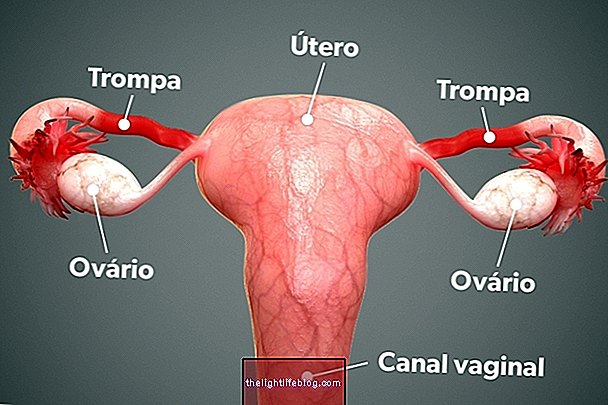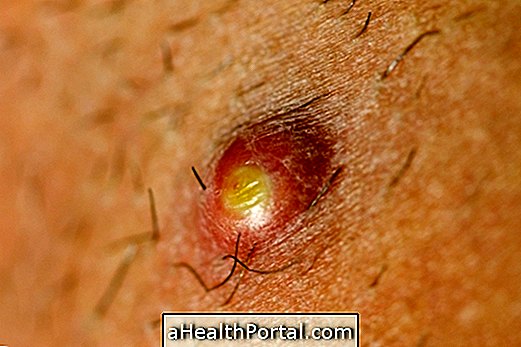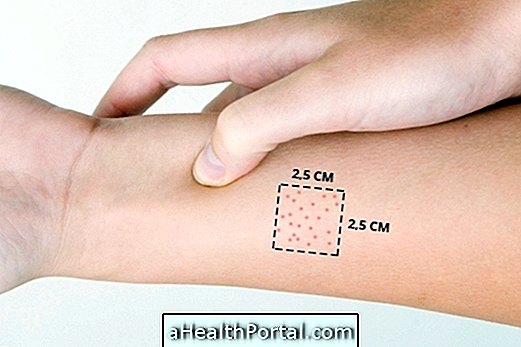The foot test is a mandatory test that is performed on all newborns from the 3rd day of life, usually in the maternity or hospital where the baby was born, where a few drops of blood are collected from the baby's heel and placed in a filter paper that is sent to a laboratory to check if the baby has phenylketonuria, hypothyroidism or other congenital disease.
After the collection of the test of the foot, the examination goes to the neonatal screening laboratory, along with the data of identification of the mother, address and telephone for contact, as well as the identification of the collection point.
If the test result is altered, the family and the collection point are contacted by the laboratory and the baby must make new tests to confirm the disease diagnosed during the test.

Price of the test of the foot
The compulsory test, which is done by the hospital or maternity, is free. However, the expanded foot test is not done by the SUS and the price depends on the state where it is made, the health plan and the number of diseases to detect. In this case, the price of the expanded foot test can vary from 200 to 350 reais.
When to do the test of the foot
The test of the foot should be done from the 3rd day of life of the baby and is usually done between the 3rd and the 6th day, but can be performed until the first month of life of the baby.
What is the test for the little foot?
The test of the foot is used to diagnose early some serious diseases such as:
- Congenital hypothyroidism, in which the baby's thyroid produces fewer hormones than normal;
- Phenylketonuria, which is a disease of metabolism;
- Hemoglobinopathies, which are diseases that affect the blood, such as sickle cell anemia is a hereditary disease in which there is change in the form of hemoglobin, a substance in the blood.
There is also the expanded, plus or master foot test that detect more diseases besides these.
See a more complete list of diseases identified in the test in: Diseases detected by the test of the foot.
Basic foot test
The basic foot test necessarily detects phenylketonuria and congenital hypothyroidism, but in some states of Brazil, the basic foot test also detects other serious diseases such as:
- Cystic fibrosis is a hereditary genetic disease in which there is the accumulation of dense and sticky secretions in the lungs, digestive tract and other areas of the body;
- Deficiency of biotinidase that causes a defect in the metabolism of vitamin biotin;
- Congenital adrenal hyperplasia which is a genetic disease characterized by a deficiency in the adrenal glands, located just above the kidneys.
The basic foot test is done by the SUS, but if parents want an expanded, plus or master, they must pay for the exam.
Expanded foot test
The enlarged foot test, in addition to the diseases detected by the basic foot test, detects even more 30 diseases, such as galactosemia and congenital rubella, for example. The expanded version of the foot test can even be divided into the plus foot test and the master foot test.
See other tests your baby should do right after birth.























